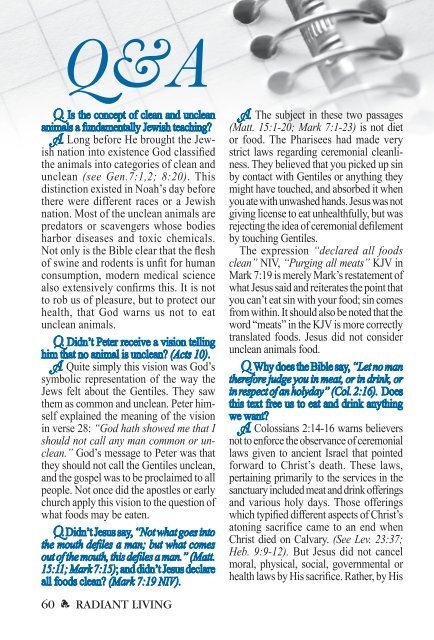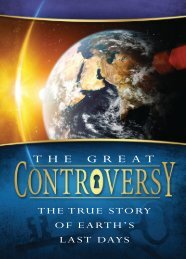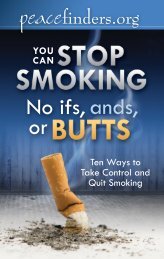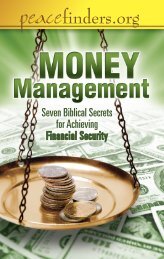Radiant Living
You also want an ePaper? Increase the reach of your titles
YUMPU automatically turns print PDFs into web optimized ePapers that Google loves.
Q&A<br />
Q. Is the concept of clean and unclean<br />
animals a fundamentally Jewish teaching?<br />
A. Long before He brought the Jewish<br />
nation into existence God classified<br />
the animals into categories of clean and<br />
unclean (see Gen.7:1,2; 8:20). This<br />
distinction existed in Noah’s day before<br />
there were different races or a Jewish<br />
nation. Most of the unclean animals are<br />
predators or scavengers whose bodies<br />
harbor diseases and toxic chemicals.<br />
Not only is the Bible clear that the flesh<br />
of swine and rodents is unfit for human<br />
consumption, modern medical science<br />
also extensively confirms this. It is not<br />
to rob us of pleasure, but to protect our<br />
health, that God warns us not to eat<br />
unclean animals.<br />
Q. Didn’t Peter receive a vision telling<br />
him that no animal is unclean? (Acts 10).<br />
A. Quite simply this vision was God’s<br />
symbolic representation of the way the<br />
Jews felt about the Gentiles. They saw<br />
them as common and unclean. Peter himself<br />
explained the meaning of the vision<br />
in verse 28: “God hath showed me that I<br />
should not call any man common or unclean.”<br />
God’s message to Peter was that<br />
they should not call the Gentiles unclean,<br />
and the gospel was to be proclaimed to all<br />
people. Not once did the apostles or early<br />
church apply this vision to the question of<br />
what foods may be eaten.<br />
Q. Didn’t Jesus say, “Not what goes into<br />
the mouth defiles a man; but what comes<br />
out of the mouth, this defiles a man.” (Matt.<br />
15:11; Mark 7:15); and didn’t Jesus declare<br />
all foods clean? (Mark 7:19 NIV).<br />
A. The subject in these two passages<br />
(Matt. 15:1-20; Mark 7:1-23) is not diet<br />
or food. The Pharisees had made very<br />
strict laws regarding ceremonial cleanliness.<br />
They believed that you picked up sin<br />
by contact with Gentiles or anything they<br />
might have touched, and absorbed it when<br />
you ate with unwashed hands. Jesus was not<br />
giving license to eat unhealthfully, but was<br />
rejecting the idea of ceremonial defilement<br />
by touching Gentiles.<br />
The expression “declared all foods<br />
clean” NIV, “Purging all meats” KJV in<br />
Mark 7:19 is merely Mark’s restatement of<br />
what Jesus said and reiterates the point that<br />
you can’t eat sin with your food; sin comes<br />
from within. It should also be noted that the<br />
word “meats” in the KJV is more correctly<br />
translated foods. Jesus did not consider<br />
unclean animals food.<br />
Q. Why does the Bible say, “Let no man<br />
therefore judge you in meat, or in drink, or<br />
in respect of an holyday” (Col. 2:16). Does<br />
this text free us to eat and drink anything<br />
we want?<br />
A. Colossians 2:14-16 warns believers<br />
not to enforce the observance of ceremonial<br />
laws given to ancient Israel that pointed<br />
forward to Christ’s death. These laws,<br />
pertaining primarily to the services in the<br />
sanctuary included meat and drink offerings<br />
and various holy days. Those offerings<br />
which typified different aspects of Christ’s<br />
atoning sacrifice came to an end when<br />
Christ died on Calvary. (See Lev. 23:37;<br />
Heb. 9:9-12). But Jesus did not cancel<br />
moral, physical, social, governmental or<br />
health laws by His sacrifice. Rather, by His<br />
60 s RADIANT LIVING
















